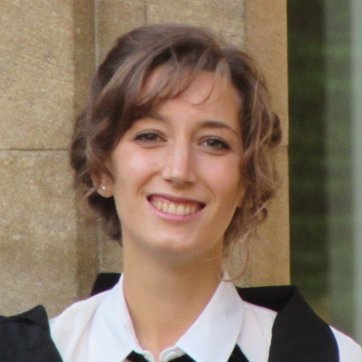The Samuel Pisar Travelling Fellowship (2015) - Elena Butti
Placement at the International Center for Transitional Justice – Colombia country office (Bogotá)

Dates: August - November 2015
Interning at the International Center for Transitional Justice (ICTJ) has been an extremely enriching experience from both an academic and a professional point of view. In my doctoral research, I investigate how children and adolescents who have been affected by the Colombian armed conflict relate to the transitional justice and peacebuilding measures that are being implemented in the country. In this crucially important moment for Colombia, international organisations are playing a prominent role in advising the government on delicate issues related to the peace and justice process. The ICTJ in one of these. A New York-based international organisation founded in 2001, the ICTJ conducts research, delivers consultancies, organises debates and promotes knowledge on transitional justice issues worldwide. Although it works on various Latin American countries, its only office in the region is based in Colombia’s capital Bogotá, a choice which evidences the relevance of transitional justice debates for the country at this very moment.
As an intern, I had to conduct a research project on the implementation of Colombia’s historic 2011 reparations law (Law 1448 or the ‘Victims’ Law’) in relation to measures for children and adolescents victims of the conflict. The specific group of victims is highly disregarded in the ongoing debate in Colombia, and more advocacy to protect their rights is needed. In three months, I (i) revised the international and national normative framework related to victims’ and children’s rights, (ii) mapped the concrete interventions the institutions created by the Victims’ Law put in place to implement this framework, and, (iii) evaluated, through empirical research comprising interviews and observations, their quality and scope. This investigation resulted in a 20-pages report written in Spanish, which will be directly used by the organisation in its advocacy work in the coming months.
From an academic perspective, this internship perfectly fitted my educational path, directly contributing to my doctoral research both substantively and logistically. In substantive terms, the internship topic was extremely relevant to my research and enabled me to acquire important background knowledge on the legal and institutional framework and practical measures which I intend to investigate children’s perspectives on. In logistical terms, spending my first months in Colombia within the framework of a well-known international organisation facilitated the establishment of important contacts for my subsequent ethnographic fieldwork, and lowered safety concerns.
Interning at the ICTJ was also extremely valuable from a professional perspective. While I am considering career paths in both the academic and international organisations sectors, I never had a serious work experience in the second before. Hence, this experience gave me a concrete idea of the skills needed and challenges faced when working in such sector, which will certainly be helpful when making the final choice of which path to pursue. Moreover, the internship has already proven extremely helpful for forging professional connections and gaining access to other opportunities, like the internship at the Colombian office of UNICEF I am undertaking at the moment.
Overall, I am convinced my experience illustrates the clear value of funding this type of internship. Working at the ICTJ has provided me with invaluable field experience prior to embarking in my doctoral fieldwork, and has helped me develop important professional skills and connections. Moreover, the organization clearly valued my skills and knowledge base and intends to rely on the report I produced (whose conclusions are summarised in the attached OxHRH blog post) for its upcoming work in the country. This is a clear example of effective knowledge exchange between academia and non-academic institutions, and clearly demonstrates the value of rigorous, impartial and objective academic research for practical purposes.
In conclusion, I would wholeheartedly recommend this experience to other doctoral candidates whose research topic or career interests bear similarities with mine. However, all this would not have been possible without the support of various funding sources, including the Samuel Pisar Traveling Fellowship in Human Rights. I am extremely thankful for the support received and for the trust granted, and hope other deserving candidates will be able to make the most of this opportunity in the future.
